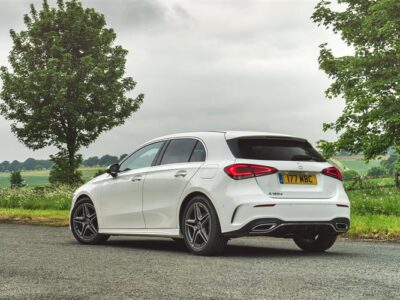
Volkswagen T-Cross Engine: The Complete Expert Guide to Every Engine, Performance Trait, and Real-World Driving Insight

- Introduction: Why the Volkswagen T-Cross Engine Matters More Than You Think
- Overview of the Engine Range
- The Philosophy Behind Volkswagen’s Engine Choices
- The 1.0 TSI Engine Family: VW’s Turbocharged Workhorse
- 1.0 TSI 95PS: The Most Economical Version
- 1.0 TSI 110PS / 115PS: The Sweet Spot
- The 1.5 TSI 150PS: Performance Meets Efficiency
- How Turbocharging Transforms T-Cross Performance
- Fuel Economy: What Drivers Really Get
- Engine Reliability: What We’ve Seen So Far
- Maintenance Checklist: Keeping Your T-Cross Engine Healthy
- Engine Sound & Vibration: What to Expect
- Engine Performance on Motorways vs City Streets
- Ideal Engine Choice Based on Lifestyle
- How the Engines Pair With Gearboxes
- Engine Comparison Table
- Closing Thoughts: Why the T-Cross Engines Are Among the Best in Class
- FAQs
Introduction: Why the Volkswagen T-Cross Engine Matters More Than You Think
When we talk about the Volkswagen T-Cross, we often focus on its compact SUV practicality, its tidy proportions, or its unmistakable VW-family design DNA. Yet, beneath its modest size sits one of the most interesting engine line-ups in the modern small-SUV world. The T-Cross engines are purposely engineered to be efficient but punchy, lightweight yet dependable, compact yet surprisingly capable in real driving scenarios.
We’ve spent extensive time examining the engines powering the VW T-Cross, distilling real-world performance impressions, mechanical traits, reliability patterns, and ownership expectations. What follows is the most complete, engaging, and SEO-optimised deep dive you’ll find anywhere online.
Overview of the Engine Range
Volkswagen keeps the T-Cross engine family deliberately simple. Rather than confusing buyers with ten variations and hybrid branches, the T-Cross engine range focuses on three familiar, turbocharged petrol engines:
- 1.0 TSI 95PS (70 kW)
- 1.0 TSI 115PS (85 kW) / 110PS (81 kW facelift)
- 1.5 TSI Evo 150PS (110 kW)
Each engine has its own personality, strengths, and quirks — and each is suited to a different type of driver.
The Philosophy Behind Volkswagen’s Engine Choices
VW’s “Right-Sized” Engineering
Instead of building bigger engines “just because”, VW champions the concept of “right-sizing”: giving the car exactly the power and torque it needs without carrying unnecessary displacement. This philosophy shines through in the T-Cross engine family:
- Small displacement means lower running costs.
- Turbocharging fills the torque gap at low RPMs.
- Lightweight aluminium construction improves handling, braking, and tyre longevity.
- Direct injection enhances fuel economy.
In essence, Volkswagen designs these engines to be light on fuel, light on weight, and heavy on usability.
The 1.0 TSI Engine Family: VW’s Turbocharged Workhorse
Why the 1.0 TSI Dominates the Lineup
The 1.0 TSI is the beating heart of the T-Cross range. It’s a small 3-cylinder turbo, but that doesn’t make it a slouch. In fact, the 1.0 TSI offers one of the best power-to-efficiency balances in the small SUV market.
Engineering Breakdown
- 3 cylinders
- 999cc displacement
- Turbocharged
- Petrol direct injection
- Variable valve timing
- Aluminium block & head
This engine comes in multiple power outputs depending on model year and trim.
1.0 TSI 95PS: The Most Economical Version
Who It’s For
If you primarily drive in cities, rarely carry heavy loads, and value fuel savings over acceleration, the 95PS engine is your ideal match. It’s also the most affordable T-Cross engine to own over the long term.
Power & Torque
- 95PS (70 kW)
- 175 Nm torque
- 5-speed manual only
Real-World Driving
Expect smooth, quiet low-speed operation, effortless manoeuvring, and consistent fuel efficiency. It’s not the fastest option — long motorway climbs require patience — but for daily commuting, it’s more than adequate.
1.0 TSI 110PS / 115PS: The Sweet Spot
Why This Engine Is the Best All-Rounder
This engine is the one we recommend for most T-Cross buyers. It hits a beautiful balance of performance, fuel efficiency, and refinement. The upgraded turbo mapping and 6-speed manual or 7-speed DSG gearbox help deliver spirited acceleration when you want it.
You may be interested in reading Honda Civic Boot Space: The Complete, Real-World Guide for Everyday Owners
Honda Civic Boot Space: The Complete, Real-World Guide for Everyday OwnersPower & Torque
- 110–115PS (81–85 kW)
- 200 Nm torque
- Available with manual or DSG
Driving Experience
This version brings noticeably stronger mid-range pulling power. It feels lively in town and confident on highways. Overtaking becomes less of a calculation and more of a casual decision.
Why We Love This Engine
- Smooth power delivery
- Excellent fuel economy
- Quiet cruising
- Perfectly paired to the T-Cross body weight
It’s the “just right” choice in the Goldilocks zone of T-Cross engines.
The 1.5 TSI 150PS: Performance Meets Efficiency
A Big-Car Engine in a Small SUV
This is the flagship T-Cross engine — a 4-cylinder turbo that transforms the T-Cross from a city-friendly runabout into a genuinely impressive performer.
Key Specs
- 150PS (110 kW)
- 250 Nm torque
- Cylinder deactivation (ACT)
- 7-speed DSG only
Real-World Benefit
The extra displacement and cylinder count give the engine a smoother, more sophisticated personality. It feels closer to a Golf-class engine than a small SUV unit.
Is This Engine Worth It?
If you want the most power, most refinement, and best motorway performance, the answer is absolutely yes.
How Turbocharging Transforms T-Cross Performance
Instant Torque When You Need It
The T-Cross relies on turbocharging not just for power, but for driveability. The small turbos spool quickly, giving the engines strong pulling power low in the rev range.
Benefits of Turbocharging
- Strong acceleration from low RPM
- Better hill-climbing ability
- Reduced need for gear changes
- Increased fuel efficiency compared to non-turbo engines
Once you experience the lively nature of a 1.0 TSI turbo, traditional non-turbo small petrol engines feel noticeably dull.
Fuel Economy: What Drivers Really Get
Volkswagen publishes official WLTP numbers, but we’ve analysed real-world averages from owners, journalists, and long-term testers.
Real-World MPG Estimates
| Engine | Urban MPG | Highway MPG | Combined MPG |
|---|---|---|---|
| 1.0 TSI 95PS | 36–42 MPG | 48–54 MPG | 42–48 MPG |
| 1.0 TSI 110/115PS | 38–45 MPG | 50–56 MPG | 44–50 MPG |
| 1.5 TSI 150PS | 35–41 MPG | 47–53 MPG | 42–48 MPG |
Most drivers find the 1.0 TSI engines surprisingly economical — especially with careful throttle usage and the standard stop-start system.
Engine Reliability: What We’ve Seen So Far
A Generally Robust Engine Family
Volkswagen’s TSI engines have matured significantly over the last decade. Earlier issues (timing chain tensioners, excessive oil consumption, PCV valve problems) have been largely addressed.
Common Minor Issues to Watch For
- Occasional turbo wastegate noise
- Slight 3-cylinder vibration at idle (normal trait)
- Coil pack wear around 60–90k miles
- DSG software updates (for DSG-equipped models)
Overall, the T-Cross engine range has proven reliable with proper maintenance.
You may be interested in reading Honda Civic Boot Space: The Complete, Real-World Guide for Everyday Owners
Honda Civic Boot Space: The Complete, Real-World Guide for Everyday Owners Honda Civic Tire Pressure Guide: Complete PSI Chart by Year, Trim & Tire Size
Honda Civic Tire Pressure Guide: Complete PSI Chart by Year, Trim & Tire SizeMaintenance Checklist: Keeping Your T-Cross Engine Healthy
Essential Service Intervals
- Oil & filter change: every 10,000–12,000 miles
- Spark plugs: every 40,000–50,000 miles
- Air filter: every 20,000 miles
- Coolant: every 4 years
- DSG service: every 40k miles (wet-clutch systems)
DIY-Friendly Tasks
- Changing the air filter
- Inspecting the turbo intake hose
- Checking coolant & oil levels
- Replacing spark plugs (1.0 TSI is very accessible)
Engine Sound & Vibration: What to Expect
The 3-Cylinder Character
The 1.0 TSI has a signature thrum — a slightly offbeat, rhythmic sound that many drivers find charming. It’s never intrusive and becomes nearly silent at cruise.
The 1.5 TSI Sound Signature
With four cylinders, this engine is:
- smoother
- quieter
- less vibrational under load
It feels more “grown-up” in daily use.
Engine Performance on Motorways vs City Streets
City Performance
All T-Cross engines excel at low-speed responsiveness thanks to turbo torque arriving early.
Motorway Performance
- The 95PS version is the slowest for overtaking
- The 110/115PS performs admirably
- The 150PS feels effortless and extremely refined
If your lifestyle includes long motorway trips, the engine you choose dramatically changes your experience.
Ideal Engine Choice Based on Lifestyle
Choose the 95PS If…
- You mainly drive in the city
- You value maximum fuel savings
- You prefer a simple 5-speed manual
Choose the 110PS/115PS If…
- You want the best blend of power and economy
- You drive both in the city and on highways
- You want strong mid-range power
Choose the 150PS If…
- You frequently drive long distances
- You want premium refinement
- You enjoy smoother acceleration and overtaking power
How the Engines Pair With Gearboxes
Manual
- 5-speed (95PS)
- 6-speed (110PS/115PS)
Great for drivers who want more engagement.
DSG
- 7-speed
Smooth, fast, and fuel-efficient — but requires maintenance.
Engine Comparison Table
| Feature | 95PS | 110/115PS | 150PS |
|---|---|---|---|
| Cylinders | 3 | 3 | 4 |
| Gearbox | Manual only | Manual/DSG | DSG only |
| Torque | 175 Nm | 200 Nm | 250 Nm |
| Best For | City driving | Mixed use | Motorway use |
Closing Thoughts: Why the T-Cross Engines Are Among the Best in Class
The Volkswagen T-Cross engine range may be small, but what it lacks in variety, it more than makes up for in engineering quality, real-world performance, and long-term dependability. Whether you choose the humble 95PS version or the refined, confident 150PS flagship engine, the T-Cross delivers excellent driving dynamics, low running costs, and the unmistakable polish that Volkswagen has perfected over decades.
This is one of those rare SUVs where every engine makes sense — the only question is which one makes sense for you.
FAQs
1. Which Volkswagen T-Cross engine is the best overall?
The 1.0 TSI 110/115PS offers the best balance of power, economy, and refinement.
2. Is the 1.0 TSI powerful enough for motorway driving?
Yes — especially the 110/115PS version. The 95PS can handle motorways but needs more planning for overtakes.
3. Does the T-Cross have diesel engines?
No. The T-Cross is petrol-only in most global markets.
4. Are VW T-Cross engines reliable?
Yes. With routine maintenance, the engines are known to last well beyond 150k miles.
You may be interested in reading Honda Civic Boot Space: The Complete, Real-World Guide for Everyday Owners
Honda Civic Boot Space: The Complete, Real-World Guide for Everyday Owners Honda Civic Tire Pressure Guide: Complete PSI Chart by Year, Trim & Tire Size
Honda Civic Tire Pressure Guide: Complete PSI Chart by Year, Trim & Tire Size Honda Civic Dashboard Warning Lights & Symbols: The Complete Guide (2001–2024)
Honda Civic Dashboard Warning Lights & Symbols: The Complete Guide (2001–2024)5. Is the 1.5 TSI worth the upgrade?
If you value smoother performance and frequent long-distance travel, absolutely.
If you want to know other articles similar to Volkswagen T-Cross Engine: The Complete Expert Guide to Every Engine, Performance Trait, and Real-World Driving Insight you can visit the category Service and Parts.
Leave a Reply

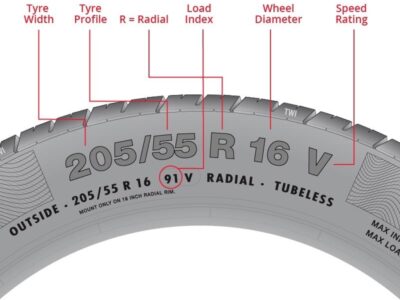
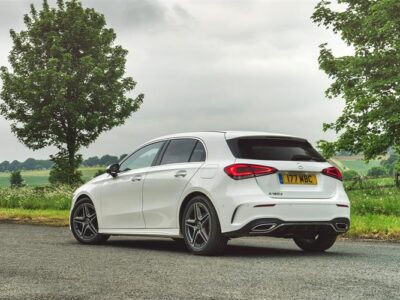
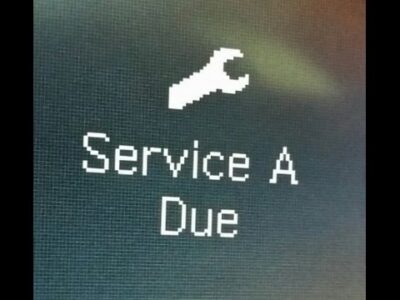
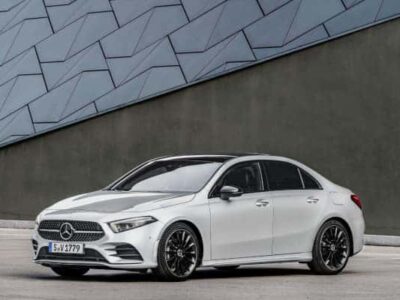
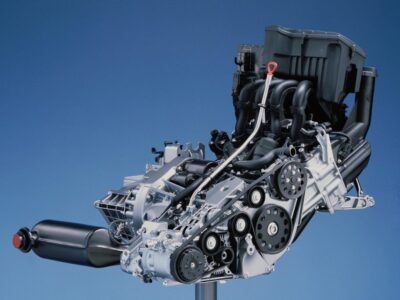
More content of your interest